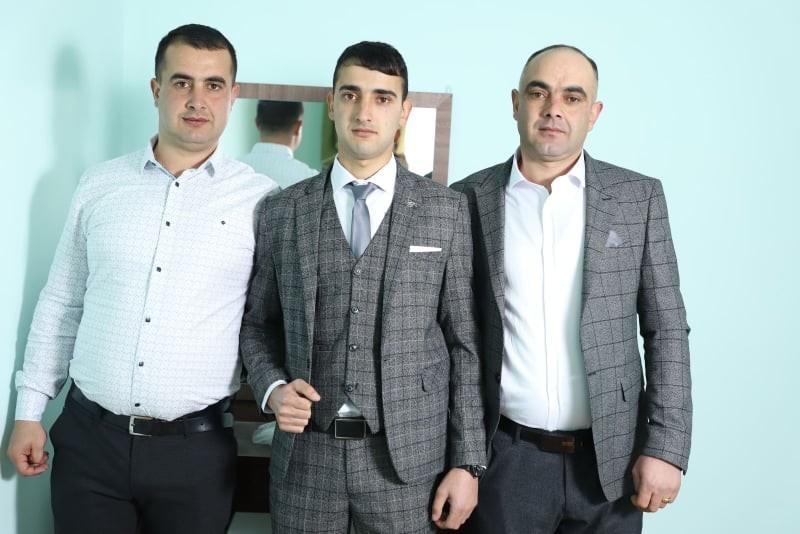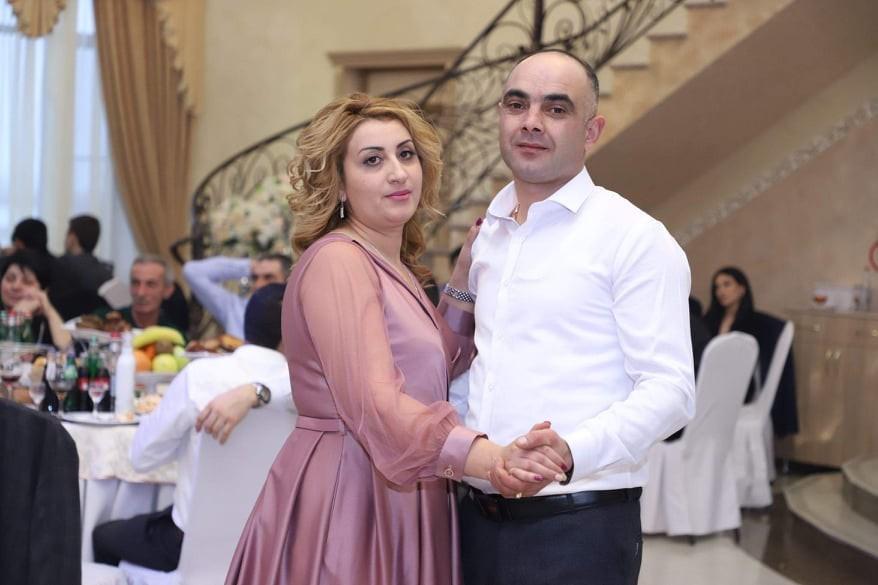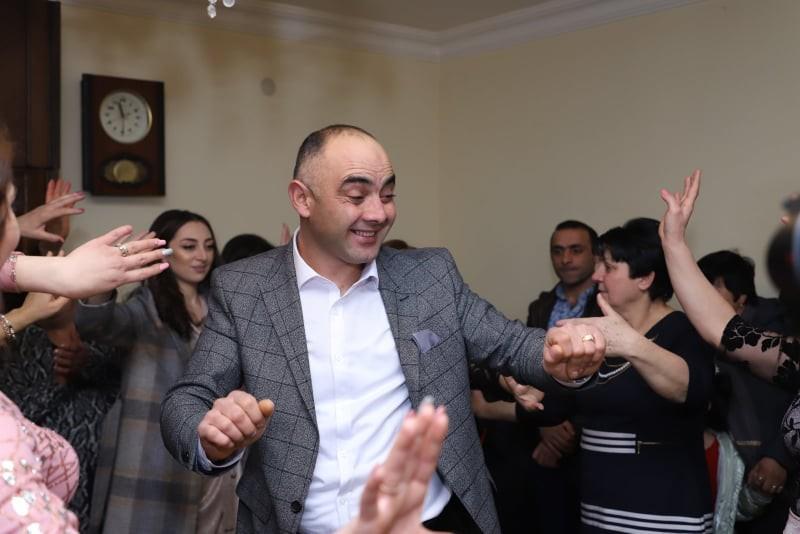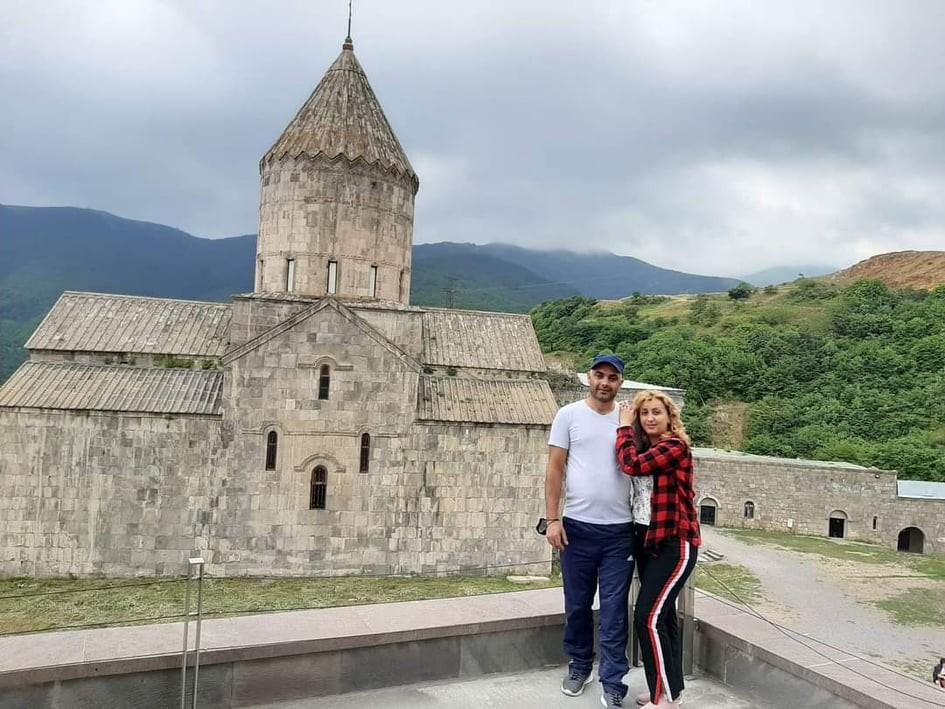
A Brother’s Lament: Remembering Gnel Fidanyan
Every morning Gnel would open his machine shop in the town of Armavir.
Truck drivers knew him very well. After returning from the army, Gnel began repairing small and then large cars. His younger brother, Virap, says the work was good and Gnel was able to provide for the family.
On October 10, the name of 35-year-old Gnel Fidanyan appeared on black ribbons in Metsamor, where he lived, as well as in his native village, Argina. A month after Gnel's death, his relatives continue to talk about him. When they walk by the workshop, they say, "We are with Gnel."
Gnel was eleven when his younger brother was born, the same age as his son Minas today. When Minas first saw the black ribbons bearing his father’s name, he asked his uncles why Gnel's name appeared on the street.
"He is a hero, that's why," they replied. The son was silent.
"Gnel’s two children, Minas and five-year-old Lilit, still do not understand the seriousness of what happened. The children do not yet know that they will never see their father. They are children," says Virap Fidanyan.
Gnel was born and raised in the village of Argina, in Armenia’s Armavir province. He was the eldest of three brothers. He was the only craftsman in the family. Gnel’s two brothers work as police officers at the Metsamor nuclear power plant. The bond between the three brothers was strong. They’d aks each other for advice, even about the smallest of problems. Virap says Gnel adapted quickly to any situation and had good relations with everyone. "He used to say, 'Do as much as you can, do good,'" the younger brother recalls.
When the recent war erupted in Artsakh Gnel told no one that he had volunteered for military service. He went to Argina on October 1 (the family lives in Metsamor). That day, he asked his parents to tell him about their family, their childhood. When saying goodbye, the parents felt that something was up. It wasn’t an ordinary farewell. They did not expect it to be their last meeting. Gnel also visited relatives living in the village that day, many of whom he saw only occasionally. He said goodbye to everyone. The next day he took his wife and children to his father-in-law's house. He went to Yerevan, received a weapon, and then called his wife, telling her he’d volunteered. He told her that there was money in a suitcase that she should spend until he returned.
"Early in the morning of October 3, he called and said, 'Let' s take the car, I'm going to war’. Sevo (Sevak, the middle-author) was surprised. Gnel said, "If there’s a war, we just can’t sit by," Virap recalls.
Virap fought in the 2016 four-day war. Gnel and Sevak volunteered at that time. Virap says the war ended early and his brothers did not have time to take part
Since he and Sevak were in the police system, they could go to the front at any moment. Virap says that in that case the third brother of the family is released from military service. That's why in those days he often went to the Metsamor post office to check if Gnel had received a conscription notice.
Gnel's wrist was operated on 15 days before the start of the war. The surgical sutures hadn’t been removed when he went to the front.
The brothers last saw Gnel in the yard of the military unit on the evening of October 4. The day before, they had asked him to change his mind about going to the front in Artsakh. Gnel, however, had made his mind up.
“I called on the evening of the fourth. He was already in Yerevan. Friends were there too. I told myself I’d go and try to persuade him out of going, although I knew he’d carry out his decision. He said now was the time to go. That we couldn’t wait until they came to kill our wives and children. He said they are fighting there, and we don’t have the right to just sit here. He asked how can we leave those eighteen-year-olds to fend for themselves,” Virap recalls, sighing
“To be honest, at the last meeting, my brother and I were constantly crying. He got angry and said we should give him strength instead. I remember the last image we had together. He went, turned around and looked. We were at the gates of the Sovetashen military unit. The bus was waiting. He said goodbye and left. That's what happened, "says Virap.
Virap says October 5 was the eleventh birthday of Gnel’s son. Gnel called his son from the Jabrayil frontline, congratulating him. Gnel would call the family late every night until October 10.
“Sevak tried to call him all that day. We were at work. I tried calling him. I called another number I had. One of his friends answered. I asked to speak with Gnel, but the guy said he wasn’t there. I knew something wasn’t right. I called Sevak and told him the story. Maybe he was wounded, I said. It never occurred to us that he had been killed. We didn’t want to think about it. I called again and told the guy to tell us the truth. He said Gnel had died,” Virap recounts, adding that he hasn’t yet come to grips with his brother’s death.
Gnel, a platoon commander, was killed by an Azerbaijani drone, just a few feet from his trench. Virap says that when the unit soldiers tried to move him, Gnel told them to first attend to an eighteen-year-old soldier who had also been hit. Gnel died seconds later.
"We are incredibly grateful to those guys who did not leave him there. Just imagine the situation we’re in when we thank God there’s a corpse we can bury,” says Virap, his voice fading yet again.
Viarp got married last February. Gnel made all the arrangements. He found the hall and hired the photographers.
“Gnel told the photographers to make sure to include him in all the shots. He was humorous guy. He visited many holy places this year. Yes, he was full of life, but the homeland was held a much greater value for him.”
 Videos
Videos Photos
Photos



Write a comment